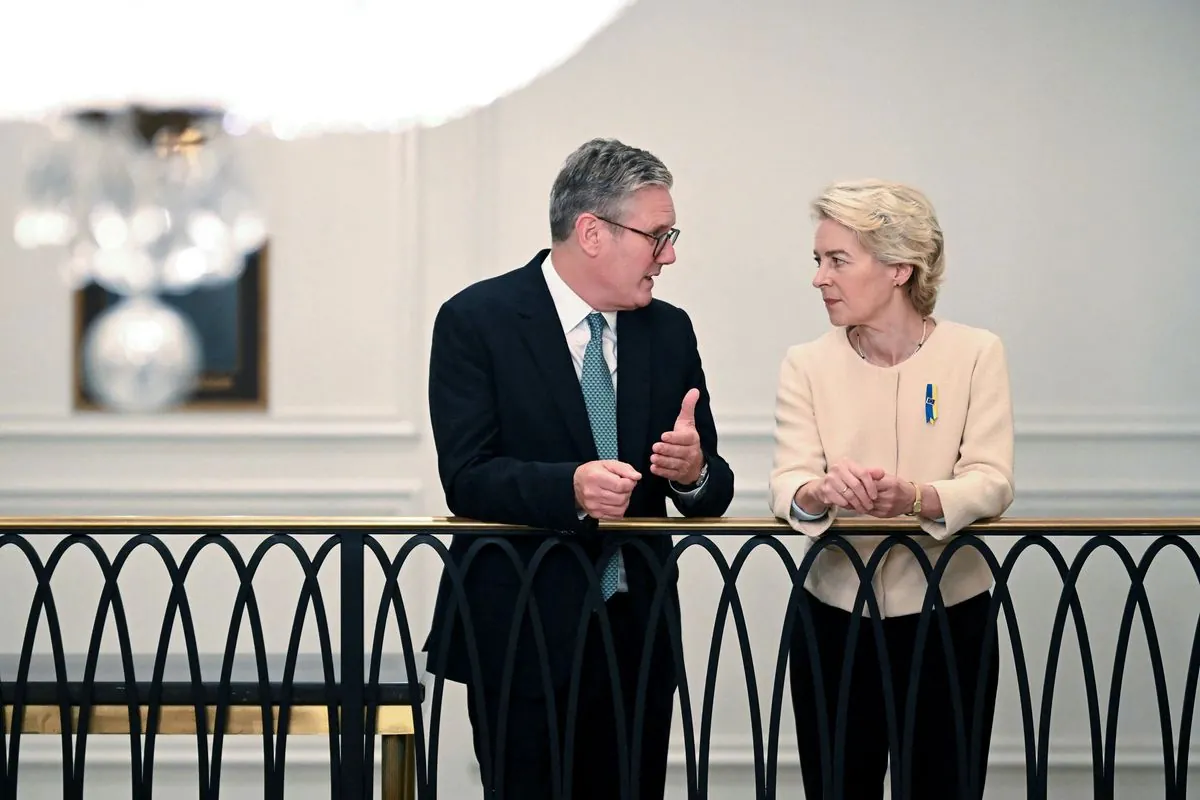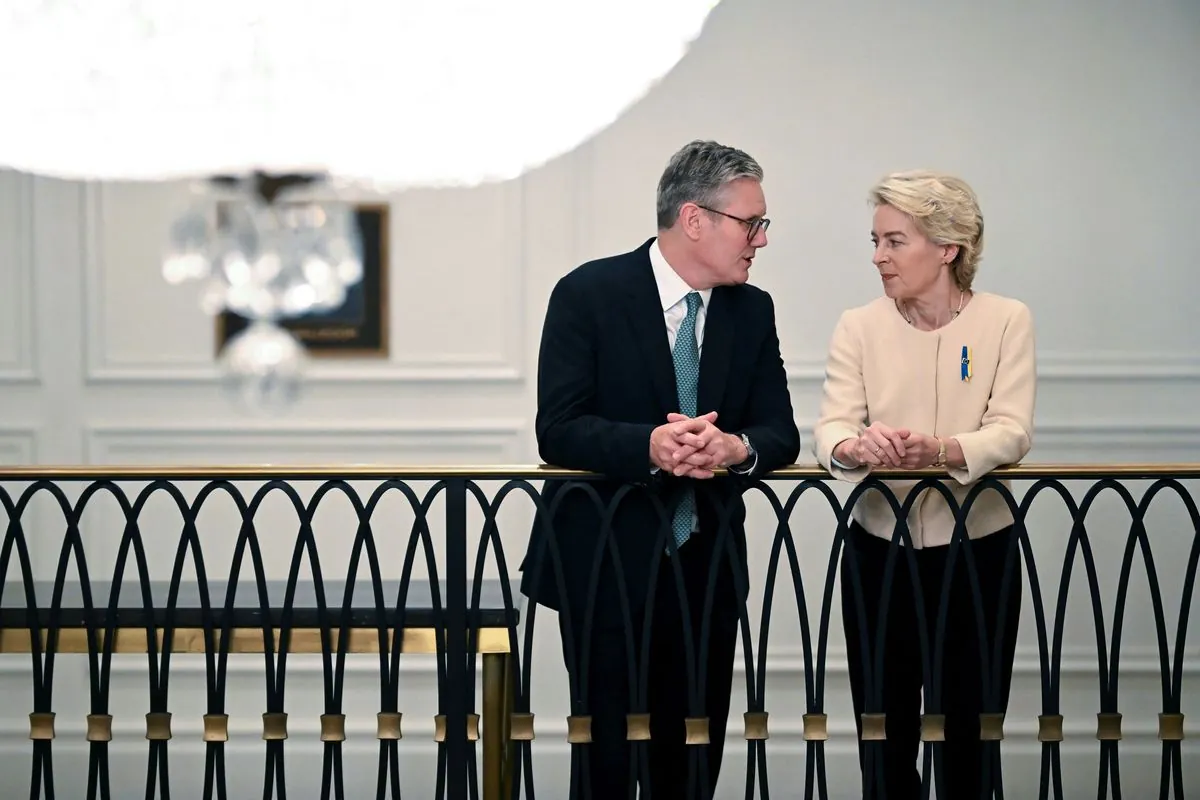UK PM Starmer Seeks to Mend EU Ties in Brussels Visit
British Prime Minister Keir Starmer visits Brussels to improve UK-EU relations, focusing on security, migration, and trade. The trip aims to establish a pragmatic relationship post-Brexit.

Keir Starmer, the British Prime Minister, embarked on a significant diplomatic mission to Brussels on October 2, 2024, aiming to rebuild the United Kingdom's relationship with the European Union. This visit comes four years after the UK's departure from the EU, which marked a significant shift in European geopolitics.
The primary focus of Starmer's discussions centered on three crucial areas: security, migration, and trade. These topics are of paramount importance in the current global context, especially considering the EU's position as the world's largest trading bloc, with a combined GDP of approximately €13.9 trillion as of 2023.
During his one-day trip, Starmer held meetings with key EU leaders, including European Commission President Ursula von der Leyen, EU Council President Charles Michel, and European Parliament President Roberta Metsola. These institutions play vital roles in shaping EU policies and direction, with the Commission serving as the executive branch, the Council defining overall political priorities, and the Parliament functioning as the legislative body.

In a statement released prior to his visit, Starmer emphasized the importance of international cooperation: "The U.K. is undeniably stronger when it works in lockstep with its closest international partners. This has never been more important — with war, conflict and insecurity all knocking on Europe's door."
The Labour Party leader expressed his determination to move beyond the Brexit era and establish a more pragmatic and mature relationship with the EU. This approach aligns with the EU's motto, "United in diversity," highlighting the potential for cooperation despite differences.
One of the proposals under discussion is an EU-initiated scheme to foster connections between young people on both sides of the English Channel. This program would allow young citizens from the EU and UK to study, work, and live in each other's territories for short periods. Such an initiative could potentially build on the success of existing EU programs, like the Schengen Area, which allows free movement between most EU countries.
Starmer's visit follows his center-left Labour Party's significant electoral victory on July 4, 2024. Since then, he has been working to redefine Britain's role on the global stage, aiming to reduce some of the post-Brexit barriers that have strained UK-EU relations. However, Starmer has made it clear that he does not intend to reverse Brexit or rejoin the EU's single market and customs union.
This diplomatic effort comes at a crucial time, as the EU continues to evolve. With 27 member states and a population of about 447 million people, the bloc remains a significant global player. The EU has demonstrated its commitment to peace and unity, even winning the Nobel Peace Prize for its efforts in advancing peace in Europe.
As Starmer engages with EU leaders, the potential for improved cooperation could have far-reaching implications for both the UK and the EU, potentially leading to enhanced security measures, more effective migration policies, and mutually beneficial trade agreements.
"I am determined to put the Brexit years behind us and establish a more pragmatic and mature relationship with the European Union."
This visit marks a significant step in the UK's post-Brexit journey, potentially opening new avenues for collaboration and understanding between the UK and its European neighbors.


































